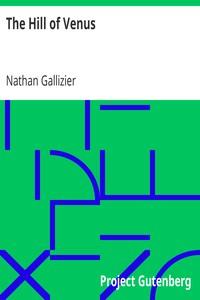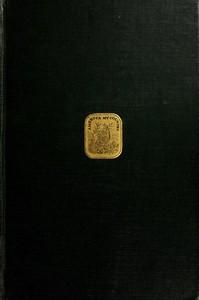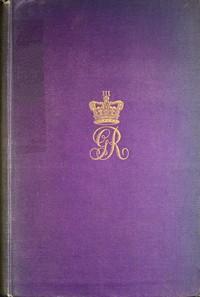|
|
Read this ebook for free! No credit card needed, absolutely nothing to pay.Words: 85807 in 15 pages
This is an ebook sharing website. You can read the uploaded ebooks for free here. No credit cards needed, nothing to pay. If you want to own a digital copy of the ebook, or want to read offline with your favorite ebook-reader, then you can choose to buy and download the ebook.

: Illustrations of Universal Progress: A Series of Discussions by Spencer Herbert - Science; Philosophy; Political science@FreeBooksWed 07 Jun, 2023 on as may be possible, can be rendered only by physiology. Every child has made the attempt to hold the foot still while it is tickled, and has failed; and probably there is scarcely any one who has not vainly tried to avoid winking, when a hand has been suddenly passed before the eyes. These examples of muscular movements which occur independently of the will, or in spite of it, illustrate what physiologists call reflex-action; as likewise do sneezing and coughing. To this class of cases, in which involuntary motions are accompanied by sensations, has to be added another class of cases, in which involuntary motions are unaccompanied by sensations:--instance the pulsations of the heart; the contractions of the stomach during digestion. Further, the great mass of seemingly-voluntary acts in such creatures as insects, worms, molluscs, are considered by physiologists to be as purely automatic as is the dilatation or closure of the iris under variations in quantity of light; and similarly exemplify the law, that an impression on the end of an afferent nerve is conveyed to some ganglionic centre, and is thence usually reflected along an efferent nerve to one or more muscles which it causes to contract. This, however, is not the sole direction in which nervous excitement expends itself. Viscera as well as muscles may receive the discharge. That the heart and blood-vessels are quickly affected by pleasures and pains, we have daily proved to us. Every sensation of any acuteness accelerates the pulse; and how sensitive the heart is to emotions, is testified by the familiar expressions which use heart and feeling as convertible terms. Similarly with the digestive organs. Without detailing the various ways in which these may be influenced by our mental states, it suffices to mention the marked benefits derived by dyspeptics, as well as other invalids, from cheerful society, welcome news, change of scene, to show how pleasurable feeling stimulates the viscera in general into greater activity. There is still another direction in which any excited portion of the nervous system may discharge itself; and a direction in which it usually does discharge itself when the excitement is not strong. It may pass on the stimulus to some other portion of the nervous system. This is what occurs in quiet thinking and feeling. The successive states which constitute consciousness, result from this. Sensations excite ideas and emotions; these in their turns arouse other ideas and emotions; and so, continuously. That is to say, the tension existing in particular nerves, or groups of nerves, when they yield us certain sensations, ideas, or emotions, generates an equivalent tension in some other nerves, or groups of nerves, with which there is a connexion: the flow of energy passing on, the one idea or feeling dies in producing the next. Thus, then, while we are totally unable to comprehend how the excitement of certain nerves should generate feeling--while, in the production of consciousness by physical agents acting on physical structure, we come to an absolute mystery never to be solved; it is yet quite possible for us to know by observation what are the successive forms which this absolute mystery may take. We see that there are three channels along which nerves in a state of tension may discharge themselves; or rather, I should say, three classes of channels. They may pass on the excitement to other nerves that have no direct connexions with the bodily members, and may so cause other feelings and ideas; or they may pass on the excitement to one or more motor nerves, and so cause muscular contractions; or they may pass on the excitement to nerves which supply the viscera, and may so stimulate one or more of these. Daily experience illustrates these conclusions. It is commonly remarked, that the suppression of external signs of feeling, makes feeling more intense. The deepest grief is silent grief. Why? Because the nervous excitement not discharged in muscular action, discharges itself in other nervous excitements--arouses more numerous and more remote associations of melancholy ideas, and so increases the mass of feelings. People who conceal their anger are habitually found to be more revengeful than those who explode in loud speech and vehement action. Why? Because, as before, the emotion is reflected back, accumulates, and intensifies. Similarly, men who, as proved by their powers of representation, have the keenest appreciation of the comic, are usually able to do and say the most ludicrous things with perfect gravity. On the other hand, all are familiar with the truth that bodily activity deadens emotion. Under great irritation we get relief by walking about rapidly. Extreme effort in the bootless attempt to achieve a desired end, greatly diminishes the intensity of the desire. Those who are forced to exert themselves after misfortunes, do not suffer nearly so much as those who remain quiescent. If any one wishes to check intellectual excitement, he cannot choose a more efficient method than running till he is exhausted. Moreover, these cases, in which the production of feeling and thought is hindered by determining the nervous energy towards bodily movements, have their counterparts in the cases in which bodily movements are hindered by extra absorption of nervous energy in sudden thoughts and feelings. If, when walking along, there flashes on you an idea that creates great surprise, hope, or alarm, you stop; or if sitting cross-legged, swinging your pendent foot, the movement is at once arrested. From the viscera, too, intense mental action abstracts energy. Joy, disappointment, anxiety, or any moral perturbation rising to a great height, will destroy appetite; or if food has been taken, will arrest digestion; and even a purely intellectual activity, when extreme, will do the like. That laughter is a display of muscular excitement, and so illustrates the general law that feeling passing a certain pitch habitually vents itself in bodily action, scarcely needs pointing out. It perhaps needs pointing out, however, that strong feeling of almost any kind produces this result. It is not a sense of the ludicrous, only, which does it; nor are the various forms of joyous emotion the sole additional causes. We have, besides, the sardonic laughter and the hysterical laughter, which result from mental distress; to which must be added certain sensations, as tickling, and, according to Mr. Bain, cold, and some kinds of acute pain. Strong feeling, mental or physical, being, then, the general cause of laughter, we have to note that the muscular actions constituting it are distinguished from most others by this, that they are purposeless. In general, bodily motions that are prompted by feelings are directed to special ends; as when we try to escape a danger, or struggle to secure a gratification. But the movements of chest and limbs which we make when laughing have no object. And now remark that these quasi-convulsive contractions of the muscles, having no object, but being results of an uncontrolled discharge of energy, we may see whence arise their special characters--how it happens that certain classes of muscles are affected first, and then certain other classes. For an overflow of nerve-force, undirected by any motive, will manifestly take first the most habitual routes; and if these do not suffice, will next overflow into the less habitual ones. Well, it is through the organs of speech that feeling passes into movement with the greatest frequency. The jaws, tongue, and lips are used not only to express strong irritation or gratification; but that very moderate flow of mental energy which accompanies ordinary conversation, finds its chief vent through this channel. Hence it happens that certain muscles round the mouth, small and easy to move, are the first to contract under pleasurable emotion. The class of muscles which, next after those of articulation, are most constantly set in action by feelings of all kinds, are those of respiration. Under pleasurable or painful sensations we breathe more rapidly: possibly as a consequence of the increased demand for oxygenated blood. The sensations that accompany exertion also bring on hard-breathing; which here more evidently responds to the physiological needs. And emotions, too, agreeable and disagreeable, both, at first, excite respiration; though the last subsequently depress it. That is to say, of the bodily muscles, the respiratory are more constantly implicated than any others in those various acts which our feelings impel us to; and, hence, when there occurs an undirected discharge of nervous energy into the muscular system, it happens that, if the quantity be considerable, it convulses not only certain of the articulatory and vocal muscles, but also those which expel air from the lungs. Had there been no interruption, the body of new ideas and feelings next excited, would have sufficed to absorb the whole of the liberated nervous energy. But now, this large amount of nervous energy, instead of being allowed to expend itself in producing an equivalent amount of the new thoughts and emotions which were nascent, is suddenly checked in its flow. The channels along which the discharge was about to take place, are closed. The new channel opened--that afforded by the appearance and proceedings of the kid--is a small one; the ideas and feelings suggested are not numerous and massive enough to carry off the nervous energy to be expended. The excess must therefore discharge itself in some other direction; and in the way already explained, there results an efflux through the motor nerves to various classes of the muscles, producing the half-convulsive actions we term laughter. This explanation is in harmony with the fact, that when, among several persons who witness the same ludicrous occurrence, there are some who do not laugh; it is because there has arisen in them an emotion not participated in by the rest, and which is sufficiently massive to absorb all the nascent excitement. Among the spectators of an awkward tumble, those who preserve their gravity are those in whom there is excited a degree of sympathy with the sufferer, sufficiently great to serve as an outlet for the feeling which the occurrence had turned out of its previous course. Sometimes anger carries off the arrested current; and so prevents laughter. An instance of this was lately furnished me by a friend who had been witnessing the feats at Franconi's. A tremendous leap had just been made by an acrobat over a number of horses. The clown, seemingly envious of this success, made ostentatious preparation for doing the like; and then, taking the preliminary run with immense energy, stopped short on reaching the first horse, and pretended to wipe some dust from its haunches. In the majority of the spectators, merriment was excited; but in my friend, wound up by the expectation of the coming leap to a state of great nervous tension, the effect of the baulk was to produce indignation. Experience thus proves what the theory implies: namely, that the discharge of arrested feelings into the muscular system, takes place only in the absence of other adequate channels--does not take place if there arise other feelings equal in amount to those arrested. One further observation is worth making. Among the several sets of channels into which surplus feeling might be discharged, was named the nervous system of the viscera. The sudden overflow of an arrested mental excitement, which, as we have seen, results from a descending incongruity, must doubtless stimulate not only the muscular system, as we see it does, but also the internal organs; the heart and stomach must come in for a share of the discharge. And thus there seems to be a good physiological basis for the popular notion that mirth-creating excitement facilitates digestion. Free books android app tbrJar TBR JAR Read Free books online gutenberg More posts by @FreeBooks
: The Hill of Venus by Gallizier Nathan Garrett Edmund H Edmund Henry Illustrator Verburg P Illustrator - Italy History 13th century Fiction@FreeBooksWed 07 Jun, 2023

: A Civic Biology Presented in Problems by Hunter George W George William - Biology; Sanitation@FreeBooksWed 07 Jun, 2023
|
Terms of Use Stock Market News! © gutenberg.org.in2025 All Rights reserved.






